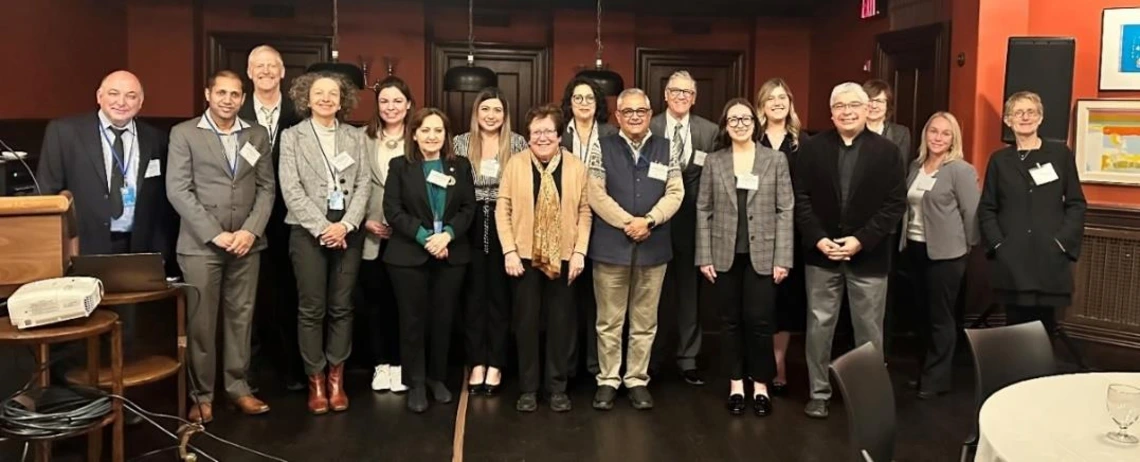The WRRC-TAAP Team Participates in Transboundary Groundwater Resilience (TGR) Town Hall Event in New York

The WRRC-TAAP Team Participates in Transboundary Groundwater Resilience (TGR) Town Hall Event in New York
Dr. Sharon B. Megdal and Dr. Elia Tapia were among the distinguished attendees at the Transboundary Groundwater Resilience (TGR) Town Hall breakfast event on March 23, 2023. The event was part of the United Nations Water Action Agenda Item #86, "Connecting the World for Transboundary Groundwater Resilience." This commitment was presented at the UN Water Conference and aims to deliver scalable and replicable water actions to enhance water-related objectives, goals, and impacts.
The Transboundary Groundwater Resilience (TGR) Network of Networks is funded by the National Science Foundation's Accelerating Research through the International Network-to-Network Collaborations (AccelNet) program. The event saw collaboration from various partners and co-hosts, including the New Mexico Water Resources Research Institute (NM WRRI) at New Mexico State University, San Diego Supercomputer Center (SDSC), University of California San Diego, West Big Data Hub at the University of California Berkeley (UCB), and Water and Climate Coalition.
Attendees present at the event included Sam Fernald, Ana Cristina Garcia-Vasquez, and K. Neupane from the NM-WRRI; Elisabeth Lictevout, IGRAC director; Maria Elena Giner, US commissioner/IBWC; Adriana Reséndez Maldonado, Mexican Commissioner/IBWC; Dipak Gyawali, former minister of water resources in Nepal; Ashley Atkins, executive director/West Big Data Hub; Julie Christopher, project manager/SDSC; Alfredo Granados, professor at UACJ; Samuel Sandoval, Professor at UC Davis; Catherine Cramer, deputy director/SDSC; and Erin Hestir, Associate Professor/UC Merced, among others.
The TGR project seeks to catalyze transboundary groundwater resilience research to address groundwater scarcity and its natural and societal impacts. Additionally, it aims to identify the capabilities of the convergence approach to determine key questions and fill critical knowledge and resource gaps. The project also aims to support the development of students and early-career researchers who will lead the next generation in collaboratively integrating water, data, and systems science to address transboundary groundwater scarcity.
During this interactive 90-minute event, attendees had the opportunity to engage in transboundary groundwater research and management discussions, share perspectives on successes, challenges, and needs, and explore potential solutions for enhancing transboundary groundwater collaboration.

